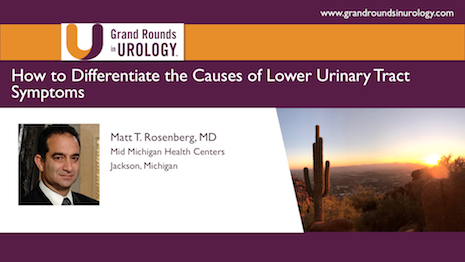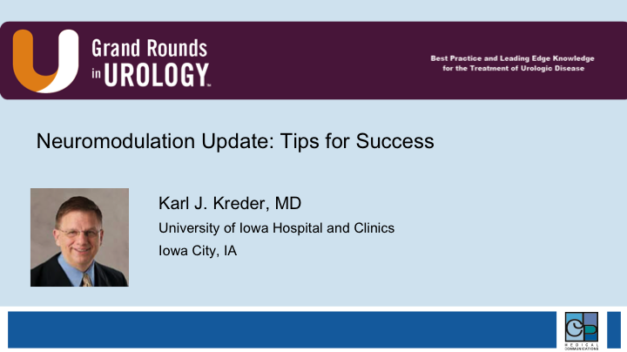Recurrent UTI in Women: AUA/SUFU Guidelines
Una Lee, MD, FPMRS, urologist and researcher at Virginia Mason Medical Center, reviews the 2019 AUA/SUFU guidelines on uncomplicated recurrent urinary tract infection (rUTI) in women, summarizes the evidence underlying these guidelines, and discusses their relevance to clinical scenarios. She first details complications clinicians may experience, such as antibiotic resistant infections and stressed patients. Dr. Lee then discusses the guideline recommendations: clinicians should use first-line therapy; should obtain urinalysis, urine culture, and sensitivity; may offer patient-initiated treatment; should use as short a duration of antibiotics as possible; may offer cranberry prophylaxis for women with rUTIs; should obtain a full patient history; and should not treat asymptomatic bacteriuria. She then argues that although molecular diagnostics are available, the sensitive microorganism detection they provide is associated with overtreatment, overdiagnosis, and confusion due to our current lack of data on which microorganisms are necessary or harmful for a healthy urinary microbiome. Dr. Lee concludes by discussing cranberries and the treatment capabilities of the proanthocyanidins (PACs) they contain, noting that antibiotics are still considered to be more effective, however.
Read More













